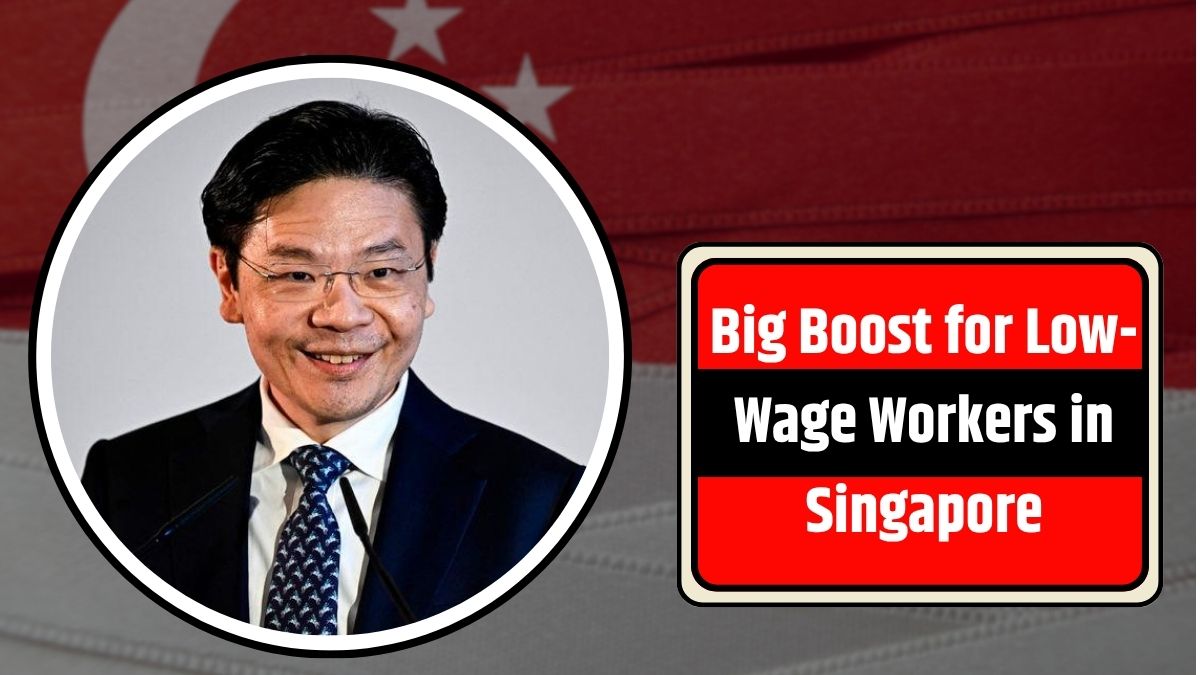In a bold move to strengthen wage growth and workplace inclusivity, Singapore has updated its Progressive Wage Credit Scheme (PWCS) for the 2025–2026 cycle. The refreshed policy highlights the government’s continued effort to uplift lower-wage Singaporean workers while offering significant financial support to employers adapting to rising payroll costs.
Jointly announced by the Ministry of Manpower (MOM) and Ministry of Finance (MOF), the updated scheme reflects a deeper national commitment to shared prosperity and equitable wage progression, covering more sectors and providing greater funding support than ever before.
Revised Government Co-Funding Rates for 2025–2026
One of the most notable updates is the adjusted co-funding framework, offering higher wage support for businesses employing lower-income workers:
| Year | Gross Monthly Wage Range | Government Co-Funding Rate |
|---|---|---|
| 2025 | Up to $2,500 | 30% |
| 2026 | Up to $2,800 | 20% |
| 2025–26 | $2,501–$3,000 | 15% in 2025, 10% in 2026 |
These rates aim to ease the financial burden on employers while directly rewarding companies that increase salaries for low-wage workers.
How PWCS Drives Strategic Wage Growth
At its core, the PWCS encourages businesses to raise wages responsibly without compromising on competitiveness. Introduced in 2022, the scheme has evolved to bridge the gap between public and private efforts toward wage reform.
In the 2025–2026 version, more workers fall within the eligible wage bracket, and higher co-funding ensures businesses are supported as they adjust their pay structures. It’s a move that strengthens the overall labour ecosystem—helping workers earn more and enabling employers to retain talent in a tighter job market.
Who Qualifies for PWCS Co-Funding in the New Cycle
To be eligible for wage support under the enhanced PWCS, both employers and employees must meet specific criteria:
- Employees must be Singaporean citizens
- They must earn gross monthly wages of up to $3,000
- Must have received a wage increment of at least $100
- Can be full-time or part-time workers
- Employers must be legally registered in Singapore and have made the appropriate CPF contributions
No application is needed. Eligible companies will be automatically included based on data submitted through the CPF system.
New Incentives Encourage Employer Participation
The revamped PWCS is not just a support tool—it’s an incentive framework for companies aiming to grow with fairness. Employers stand to gain more than just subsidies:
- Attract and retain skilled workers
- Enhance company reputation as a progressive and responsible employer
- Increase workforce morale and productivity
- Improve internal wage systems and compliance culture
- Align with Singapore’s national values of inclusion and equitable development
For many businesses, the financial relief from co-funding helps offset wage increases, making it easier to commit to long-term salary growth without sacrificing business health.
PWCS Works in Tandem with Existing Support Measures
The PWCS does not operate in isolation. It complements other important programs like:
- The Workfare Income Supplement (WIS), which provides cash and CPF top-ups to low-wage workers
- The Progressive Wage Model (PWM), which sets wage floors in key sectors like cleaning, security, and landscape
- Other skills upgrading initiatives that help workers improve their earning potential
This interconnected strategy ensures that as wages go up, worker capabilities and job security also improve—creating a well-rounded approach to sustainable employment.
New Sectors Added to the Scheme in 2025
Starting in 2025, the PWCS will cover more industries, expanding its reach to sectors that traditionally employ a large number of low-wage workers. These include:
- Retail
- Food services
- Administrative support
- Waste management
These additions reflect the government’s intent to spread wage growth beyond just regulated industries, helping more Singaporeans benefit from better pay and job stability.
Looking Ahead: More Changes Likely After 2026
Singapore’s wage policy remains dynamic and forward-looking. A review scheduled for 2027 will assess the effectiveness and sustainability of the 2025–26 enhancements. Possible outcomes of this review could include:
- Adjustments to co-funding rates
- Revisions of the wage thresholds
- Expansion to cover more job sectors
- Introduction of digital compliance tools to streamline wage reporting
This signals that the PWCS may continue to evolve, keeping pace with labour market shifts, inflationary pressures, and employer capacity.
Why the 2025 PWCS Update Matters Now
In a post-pandemic economy marked by cost-of-living challenges, this refreshed PWCS comes at a critical time. It demonstrates Singapore’s commitment to raising the standard of living for those at the base of the wage ladder.
Key employer benefits include:
- Attracting stable, long-term talent
- Aligning with ESG goals and social expectations
- Reducing employee turnover
- Preparing for digital wage management standards
For employees, the changes mean higher take-home pay, greater job satisfaction, and a clearer path to financial independence.
Singapore’s Continued Journey in Wage Transformation
With the 2025–26 Progressive Wage Credit Scheme, Singapore reinforces its vision for inclusive economic growth. By expanding coverage, increasing co-funding, and adding more industry participation, the government is building a future where wage growth is fair, structured, and scalable.
Employers who take advantage of the PWCS not only receive financial assistance but also contribute to Singapore’s long-term social and economic goals.
This update isn’t just about numbers on a payslip—it’s about building a stronger, fairer workforce for tomorrow.
Frequently Asked Questions (FAQs)
Q1. What is the main goal of the Progressive Wage Credit Scheme (PWCS)?
To support wage increases for lower-wage Singaporeans by co-funding employers’ efforts to raise salaries.
Q2. How much co-funding will employers receive in 2025?
Up to 30% of wage increases for employees earning up to $2,500 per month.
Q3. Do employers need to apply for PWCS support?
No. The scheme is automatically applied to eligible businesses based on CPF data.
Q4. Which workers qualify for the PWCS benefits?
Singapore citizens in full- or part-time jobs, earning up to $3,000/month, and receiving at least a $100 wage increase.
Q5. Which new sectors are included in 2025?
Retail, food services, administrative support, and waste management are now included.
Q6. What happens after 2026?
A policy review in 2027 may lead to further changes in co-funding rates, wage thresholds, or sector coverage.


